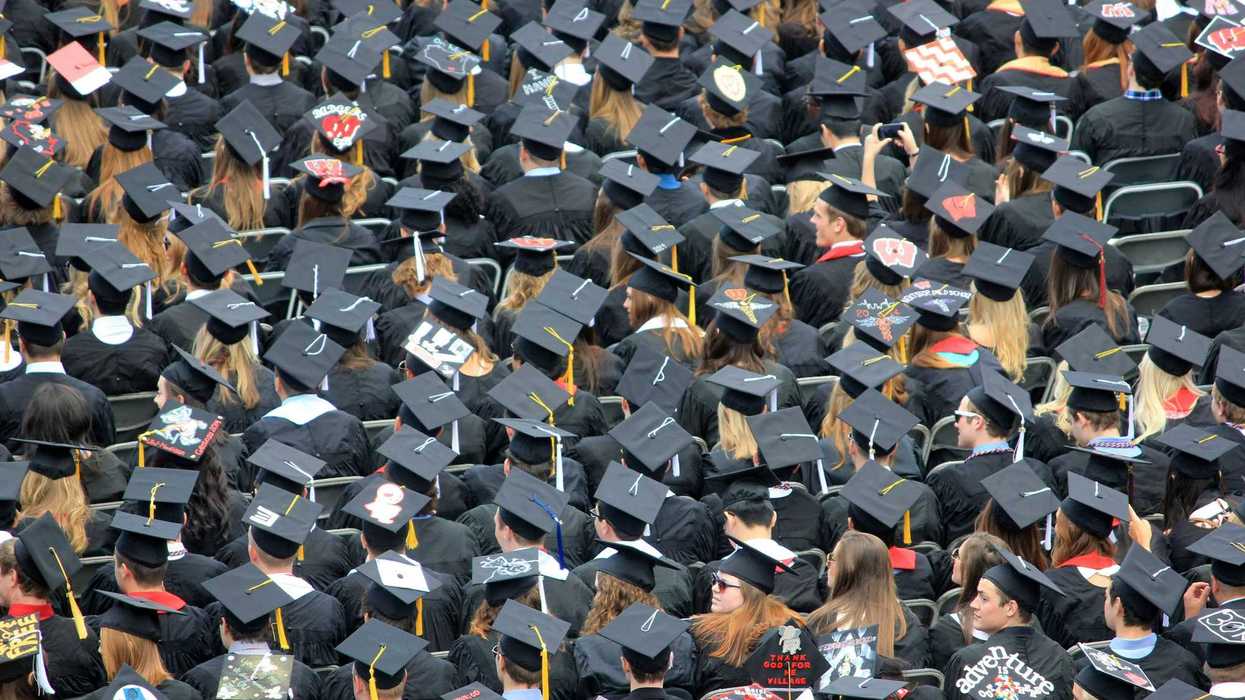When I was running a school, I knew that every hour of my team’s day mattered. A well-prepared lesson, a timely phone call home to a parent, or a few extra minutes spent helping a struggling student were the kinds of investments that added up to better outcomes for kids.
That is why the leaked recording of Success Academy CEO Eva Moskowitz pressuring staff to lobby elected officials hit me so hard. In an audio first reported by Gothamist, she tells employees, “Every single one of you must make calls,” assigning quotas to contact lawmakers. On September 18th, the network of 59 schools canceled classes for its roughly 22,000 students to bring them to a political rally during the school day. What should have been time for teaching and learning became a political operation.
This is not simply about one leader’s poor judgment. It exposes a structural reality in the charter model. Unlike traditional public schools, charters must continually secure their share of taxpayer dollars, which creates pressures that blur the line between education and politics. Public money intended for classrooms can easily be redirected toward political activity.
Success Academy has a history of doing this, having mobilized staff and families for rallies during the early days of Mayor Bill de Blasio’s administration. More recently, charter leaders aimed pointed comments at Zohran Mamdani’s opposition to lifting the charter school cap in NYC beyond the current limit of 275, avoiding his name but making clear he was the target. That level of hostility toward an elected official’s policy stance edges close to electioneering and shows how charters use taxpayer resources and compromise public trust.
The pattern makes clear that this is not a one-time mistake but a recurring strategy. If a school cannot survive without turning its teachers and its students into a lobbying force, then it does not deserve to survive.
The costs of this pressure are real. Every hour assigned to calling legislators is an hour lost to lesson planning, supporting a struggling reader, or improving curriculum. Involving children in rallies goes even further, turning students into props for a cause they did not choose. Families send their children to school to learn, and taxpayers expect their dollars to fund classrooms, not political campaigns.
I know from personal experience how easily this kind of mission drift happens. As a charter school leader, I once sat through an anti-union presentation about blocking organizing. The tactic was different, but the impulse was the same: using institutional power to shape employees’ civic choices. Whether the issue is suppressing a union drive or directing staff to advocate for legislation, coercing political activity erodes trust and undermines the purpose of schools.
Charter networks have also invested heavily in professional lobbying. Families for Excellent Schools, a former NYC advocacy group for charters, once spent nearly $10 million on lobbying in a single year in New York. Success Academy itself reported $160,000 in federal lobbying in 2024. Those outlays are legal. But was Moskowitz trying to save money by conscripting educators and even students into the work that paid lobbyists usually do? That is legally questionable. The fact that someone on the inside took the risk to leak the recording shows some recognition of how inappropriate these practices were.
Lawmakers have already taken notice. State Senators John Liu and Shelley Mayer called the Moskowitz rally “an egregious misuse of instructional time and state funds” and urged a formal investigation.
Publicly funded institutions should never compel political participation, and clear boundaries protect everyone. Leaders know their limits, employees know their rights, and families can trust that students will not be pulled into political theater.
Policy reforms can strengthen those boundaries. Oregon bars employers from disciplining workers who refuse to attend political or religious meetings, and Connecticut bans mandatory political meetings outright. New York should adopt similar protections and go further for publicly funded schools. Any requirement that employees engage in political lobbying during work hours or with public resources should be explicitly prohibited. Students should never be taken out of class to participate in political events.
Some will argue this is only one leader’s excess. That response ignores the incentives built into a model that ties school growth and charter renewal to political capital. Unless lawmakers act, the cycle will repeat. The safer and fairer path is to set boundaries that keep politics out of the school day, protect staff from coercion, and safeguard children’s learning.
When I left school leadership, a mentor told me, “The real test of a model is what it makes people do under pressure.” The Success Academy scandal is a test for the charter sector, and it’s failing. Institutions that rely on coerced speech to sustain themselves are not just bending rules; they are breaking faith with the families and taxpayers who fund them.
Ismael Loera is the Director of People and Culture at Room to Grow and a Paul and Daisy Soros and Public Voices Fellow with the OpEd Project.




















